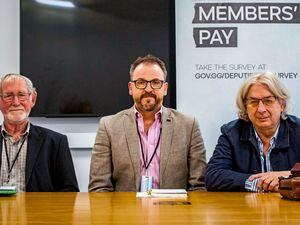‘Intolerable poverty’ for 224 families under income support
THREE-QUARTERS of income support recipients are better off than under the benefits system it replaced.

However, almost 20 times as many families are living in what the committee responsible for bringing the changes defines as ‘intolerable poverty’.
Employment & Social Security is proposing an above-inflation rise in the benefit cap, from £670 to £750 per week, in order to reduce the 224 families and 721 children who are currently living below the poverty line.
Many of these are working families with two or three children.
The total compares to 12 families and 56 children in this situation under the supplementary benefit scheme.
ESS president Michelle Le Clerc said opening up income support to people outside of States housing promoted equality and had not elevated costs as much as originally forecast.
‘When the implementation details were debated by the States in February 2018, it was estimated that the introduction of the income support scheme would result in an increase in annual expenditure of £4.57m. in 2019, compared to the schemes it replaced,’ she said.
‘Subsequent decisions of the States regarding waste disposal charges have added an estimated £485,000 per year to income support costs.
‘However, largely due to fewer claims to income support than expected, the current indications are that the net increase in expenditure for 2019 will remain at around the expected £4.57m., even after adding in the waste charges, and the proposed increase in the benefit limitation to £750 per week.’
Deputy Le Clerc said there were clearly matters to be addressed as the benefits system bedded in.
Her committee will report to the States by March with its proposed changes.
‘The introduction of income support has improved the finances of 75% of recipients. Of the 25% who are disadvantaged, many are disadvantaged due to the existence of the benefit limitation,’ she said.
‘The benefit limitation has been an element of means-tested benefit since 1971 and is not a new feature of income support. What has changed is that the closure of the rent rebate scheme has resulted in the effect being more pronounced.
‘A feature of the rent rebate scheme was that it allowed for households living in social housing to receive more financial support than an identical household in the private sector.
‘The SWBIC report referred to what it called the hidden benefit limitation, which was as much as £900 per week in 2015 for some tenants of social housing.
‘Under the new system, everyone is subject to the same rules and unless they are affected by the benefit limitation they will receive an amount sufficient that they are not living in intolerable poverty.
‘At present, those who are disadvantaged are receiving a transitional rent rebate which will decline progressively and lapse within three years.
‘As such, it is important that the issue of benefit limitation is addressed soon. This has been identified for some time, which is why the committee indicated in its policy plan that it would be proposing above-inflation increases.’
The States’ definition of intolerable poverty is based on the 2011 minimum income standards basket of goods, which was adjusted by the Social Welfare Benefits Investigation Committee in 2016 and uprated since.





